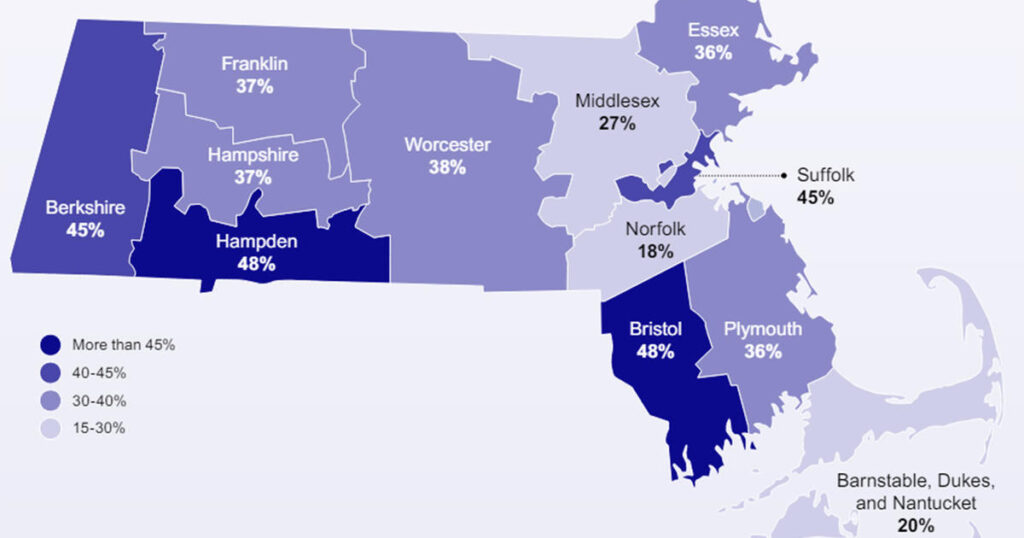BOSTON — Hunger is on the rise in Massachusetts, and rising food costs are a big factor, according to a new report from the Greater Boston Food Bank.
The survey found that about 1.9 million Massachusetts adults, about one-third of the state’s adult population, report that they will be food insecure or have insufficient money to buy food in 2023. That’s up from an estimated 1.8 million last year.
Massachusetts had the sixth-highest food price increase over the past year, according to the report, and food-insecure households estimate they need to spend about an extra $60 a week, or $2,000 a year, to buy enough food.
Where are the people in Massachusetts who are struggling to pay for food?
The study found that every county in the state experienced “severe food insecurity” last year, with at least 45% of adults in Suffolk, Bristol, Hampden and Berkshire counties reporting difficulty buying food.
The counties with the least food security were Norfolk, Cape Cod and the Islands and Middlesex counties, according to the report.
Map showing food insecurity by Massachusetts county Greater Boston Food Bank
The survey found “stark racial disparities” in hunger among Massachusetts households: Only 26% of Asian households and 30% of white households reported food insecurity, but not black (51%), Hispanic (56%) or Native American (62%) households.
Additionally, 56% of LGBTQ+ households said they experienced food insecurity in the past year.
How are Massachusetts residents dealing with rising food prices?
The report found that 8 in 10 food-insecure households who receive SNAP benefits still need help buying groceries.
“Due to the rising cost of living across Massachusetts, food insecure households continue to make significant financial compromises and utilize a variety of coping strategies to alleviate hunger,” the report said.
More than 60% of those who said they were food insecure reported having to choose between groceries, utility bills, transportation bills and mortgage/rent payments.
To afford food, 86% said they bought the cheapest food available, 60% said they received help from family and friends, 46% said they sold or pawned personal items, and about 45% said they diluted food and drinks, including infant formula, with water.
The study also found that free school lunches in Massachusetts have had an “overwhelmingly positive” impact, citing a “deeply negative” impact from children in the state who reported going hungry, skipping meals or going without food for an entire day because they didn’t have enough money for food.
Neil Reilly



